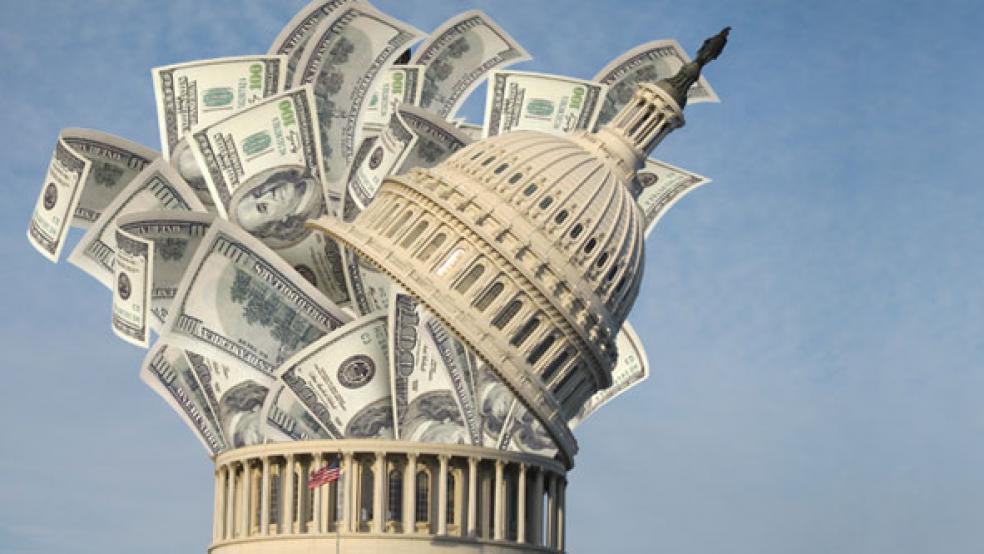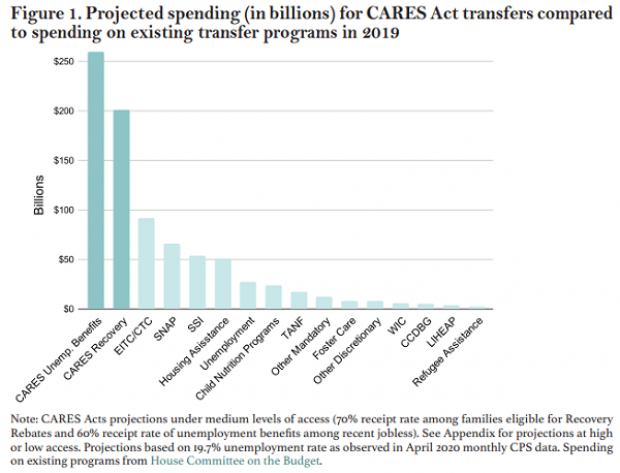Despite an extraordinary rise in unemployment during the coronavirus crisis, the level of poverty in the U.S. has remained steady or even fallen slightly thanks to the unprecedented increase in federal relief spending, according to new studies reviewed by Jason DeParle of The New York Times.
Researchers at the Center on Poverty and Social Policy at Columbia University found that the roughly $500 billion Congress authorized in the CARES Act for additional safety net spending – about half of which is dedicated to the $600 per week enhancement of unemployment benefits (see the chart below) – helped prevent millions of people from falling into poverty. With the relief spending, the researchers projected the poverty rate rising slightly this year to 12.7%, up from 12.5% before the pandemic. Without the spending, the rate would have climbed to 16.3%, with roughly 12 million more people becoming impoverished.
“Right now, the safety net is doing what it’s supposed to do for most families — helping them secure a minimally decent life,” said Zachary Parolin, one of the researchers. “Given the magnitude of the employment loss, this is really remarkable.’’
A separate study found that the surge in federal spending actually lowered the poverty rate as poorer households saw an increase in income. Using a different definition of poverty, researchers at the University of Chicago and Notre Dame found that the 12-month poverty rate fell from 10.9% in January and February to 8.6% in April and May.
What’s next? The researchers emphasize that despite the better-than-expected estimates on poverty, millions of Americans continue to face serious hardships. Some workers have been unable to access payments they are entitled to receive, and the disbursement of aid has been uneven and sometimes unpredictable. More significantly, much of the increased safety net spending is temporary, with the enhanced unemployment benefits slated to expire at the end of July. While policymakers are still debating what comes next, it’s almost certain that the extraordinary spending authorized by Congress will decline as the economy reopens, potentially setting the stage for a significant increase in poverty if the recovery is sluggish and unemployment remains elevated for an extended period of time.
For more details, see the studies here and here, and The New York Times article here.





